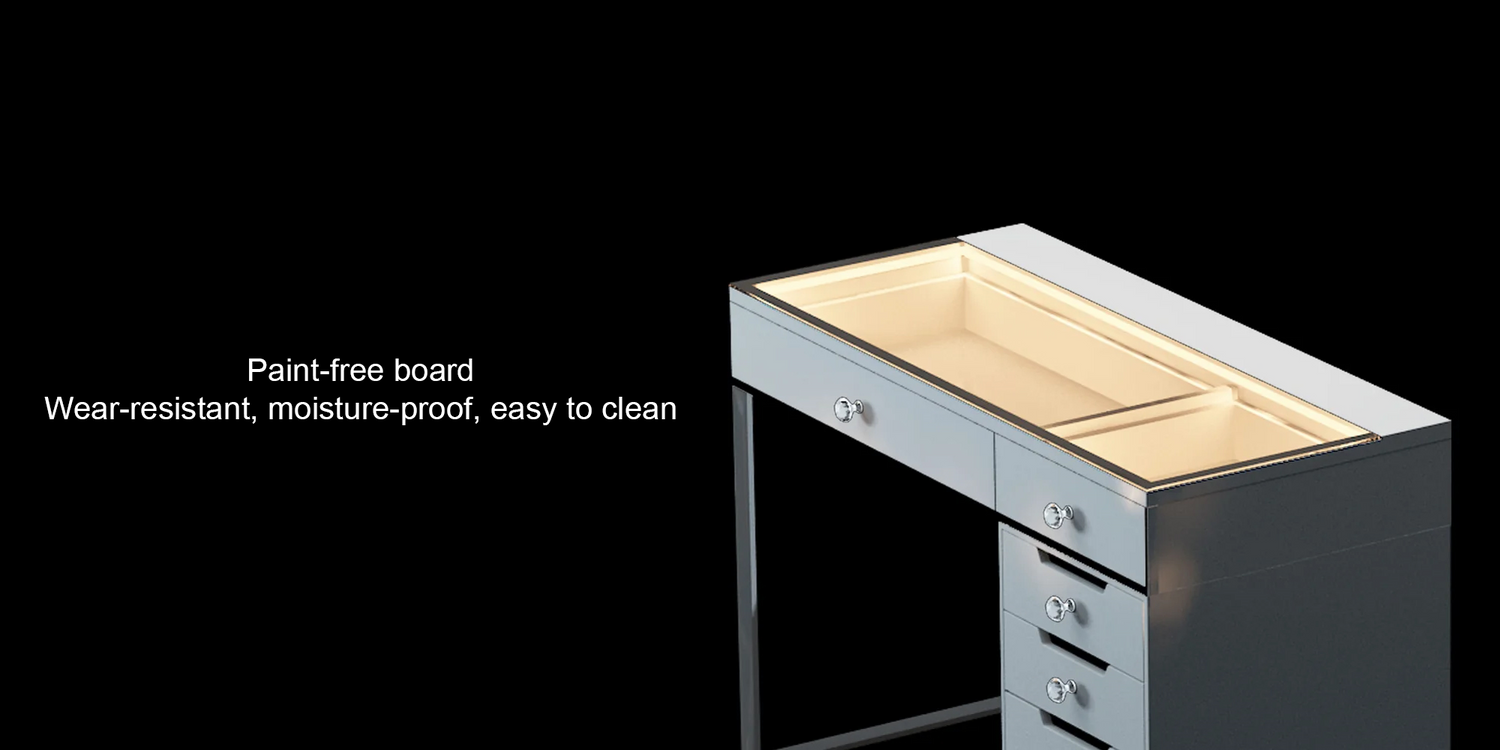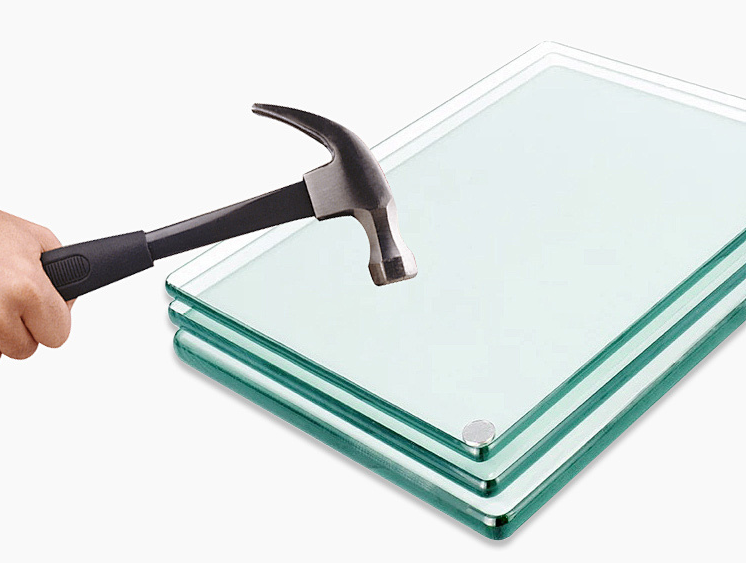Keeping the mirrors in your home sparkling clean not only enhances the overall aesthetic appeal, but also contributes to better lighting and an inviting atmosphere. Fortunately, achieving streak-free and pristine mirrors doesn't require harsh chemical cleaners or expensive products. With just a few simple ingredients that you likely already have in your household, you can make highly effective homemade cleaning solutions. This guide will walk you through the best methods for cleaning mirrors effortlessly, as well as provide useful tips for tackling even the toughest stains using natural and readily available materials.
Know Your Vanity Mirror Cleaning Helpers
Before making homemade cleaning solutions for your vanity mirrors, it's helpful to understand the properties of two common household ingredients - white vinegar and ammonia.
1. White Vinegar's Natural Cleaning Power
White vinegar makes an excellent mirror cleaner due to its mild acidity. This acidity helps break down mineral deposits, soap scum, and other grimy buildup with ease. Vinegar is also inexpensive, non-toxic, and won't leave harsh fumes or residues behind.
2. Ammonia's Grease-Fighting Abilities
Ammonia is an alkaline solution that excels at cutting through tough grease, oil, and caked-on grime on mirror surfaces. Its powerful cleaning capabilities allow it to leave mirrors with a brilliant, streak-free shine when used properly.
3. Safety with Ammonia
While effective, ammonia requires some precautions during use. Its vapors can irritate eyes, nose and lungs, so ensure plenty of ventilation. Never mix ammonia with bleach or other cleaners to avoid creating toxic fumes. Wearing gloves is also recommended when working with ammonia solutions.
With an understanding of vinegar's natural cleaning strengths and ammonia's grease-fighting power, as well as safety considerations, you're ready to start making your own mirror cleaning solutions effectively.

How to Make Your Vanity Mirror Cleaning Solutions
1. White Vinegar Solution
One of the simplest yet effective mirror cleaners is a white vinegar solution. Mix equal parts white vinegar and warm water in a spray bottle until fully combined. Spray this solution generously onto the mirror surface. Then, take a clean microfiber cloth and wipe the mirror horizontally using straight overlapping strokes to prevent streaking. Once wiped clean, take a dry microfiber cloth or crumpled pieces of old newspaper and buff the mirror to a brilliant, streak-free shine.
2. Ammonia-Based Cleaner
For an extra grease-fighting punch, try making an ammonia-based cleaning solution. In a large bucket or container, combine 1 cup of ammonia, 1/2 cup of rubbing alcohol, 1 tablespoon of dish soap, and 1 gallon of warm water. Use a utensil to gently stir and fully incorporate all the ingredients into the solution. Transfer this mixture into a spray bottle. Generously spray it onto the mirror, then wipe using a microfiber cloth and horizontal strokes. Be sure to thoroughly dry the mirror after wiping by buffing with a cloth - this prevents any streaks from drying solution.
The vinegar solution provides a powerful but gentle clean, while the ammonia-based recipe adds extra grease-cutting abilities. With just some basic supplies like vinegar, ammonia, dish soap and rubbing alcohol, you can inexpensively make pro-quality cleaning solutions at home for sparkling mirrors.
How to Tackle Tough Stains on Vanity Mirrors
Even with regular cleaning, mirrors can sometimes develop stubborn stains or sticky residues that require special treatment. This section covers techniques for removing those difficult spots.
1. Spot Treatment with Rubbing Alcohol
For tough stains or sticky messes, rubbing alcohol can be an effective spot treatment. Simply apply some rubbing alcohol directly onto the stain using a clean cloth or paper towel. Let it sit briefly to help dissolve the stain, then wipe away the residue. As an alternative, you can also use nail polish remover containing acetone, which works similarly to break down tough stains.
2. Mechanical Removal with a Razor Scraper
If a stain refuses to budge with cleaning solutions alone, you may need to try mechanical removal. Dampen the stained area with water or a cleaning solution first to soften the stain. Then, hold a razor scraper at a 45-degree angle and gently scrape the stain away from the mirror surface. Avoid applying too much pressure to prevent scratching the mirror.

3. Baking Soda Paste for Caked-On Grime
For really caked-on, stubborn stains, make a baking soda paste. Simply mix equal parts baking soda and white vinegar in a bowl until it forms a spreadable paste consistency. Apply this directly onto the mirror stain using a damp cloth or sponge. Allow the baking soda paste to sit for several minutes so it can work on breaking down the stain. Finally, wipe away the paste along with any stain residue.
With a bit of elbow grease and these special stain-busting techniques, even the toughest mirror stains don't stand a chance against your cleaning prowess. Be patient and persistent for pristine results.
Pro Tips for Cleaning Mirrors Like an Expert
Cleaning mirrors isn't just about having the right solutions - there are some additional pro tips and tricks that can take your mirror cleaning game to the next level. Utilize these simple strategies for stellar results.
1. Protect Those Mirror Frames
Before beginning your mirror cleaning, take a moment to protect the frames or any surrounding woodwork from potential damage or exposure to cleaning solutions. You can use painter's tape or masking tape to cover the edges where the mirror meets the frame. Alternatively, simply drape a damp cloth over the frames while cleaning to keep them protected.
2. Ventilation is Key
Some cleaning ingredients like ammonia can give off fairly strong fumes. To ensure proper ventilation when using these solutions, open nearby windows or use exhaust fans to allow for adequate airflow. This will prevent unpleasant odors from lingering and provide a safer cleaning environment overall.
3. Shaving Cream Stops Mirror Fog
Here's a handy trick - apply a thin, even layer of shaving cream to your cleaned mirror surface, then buff it off with a cloth. The shaving cream leaves behind a thin residue that acts as a moisture barrier to prevent future fogging and keep your mirror looking clear. No more having to wipe away condensation!
4. Work In Sections
For larger mirror surfaces, it can help to work in sections rather than trying to cover the whole area at once with cleaner. This ensures the solution doesn't have a chance to dry before being wiped, which can lead to streaking. Clean one section fully before moving on.
By utilizing these pro tips like protecting frames, ensuring ventilation, using shaving cream for fog prevention, and working in sections, you'll be able to clean your mirrors cleanly and efficiently every time.

Mirror Cleaning Mastery
From the gentle yet effective vinegar solution to the grease-cutting might of the ammonia cleaner, these recipes will keep your vanity mirrors sparkling. And when faced with stubborn stains or residues, remember to employ specialized tactics like rubbing alcohol spot treatments, razor scraping, or the baking soda paste for a deep, caked-on grime. With a few pro tips up your sleeve, such as protecting frames, ensuring ventilation, and using shaving cream to prevent future fogging, you'll be unstoppable in your pursuit of flawlessly reflective surfaces. Commit to regular cleaning and your vanity will dazzle with streak-free, pristine mirror reflections.




Leave a comment
This site is protected by hCaptcha and the hCaptcha Privacy Policy and Terms of Service apply.